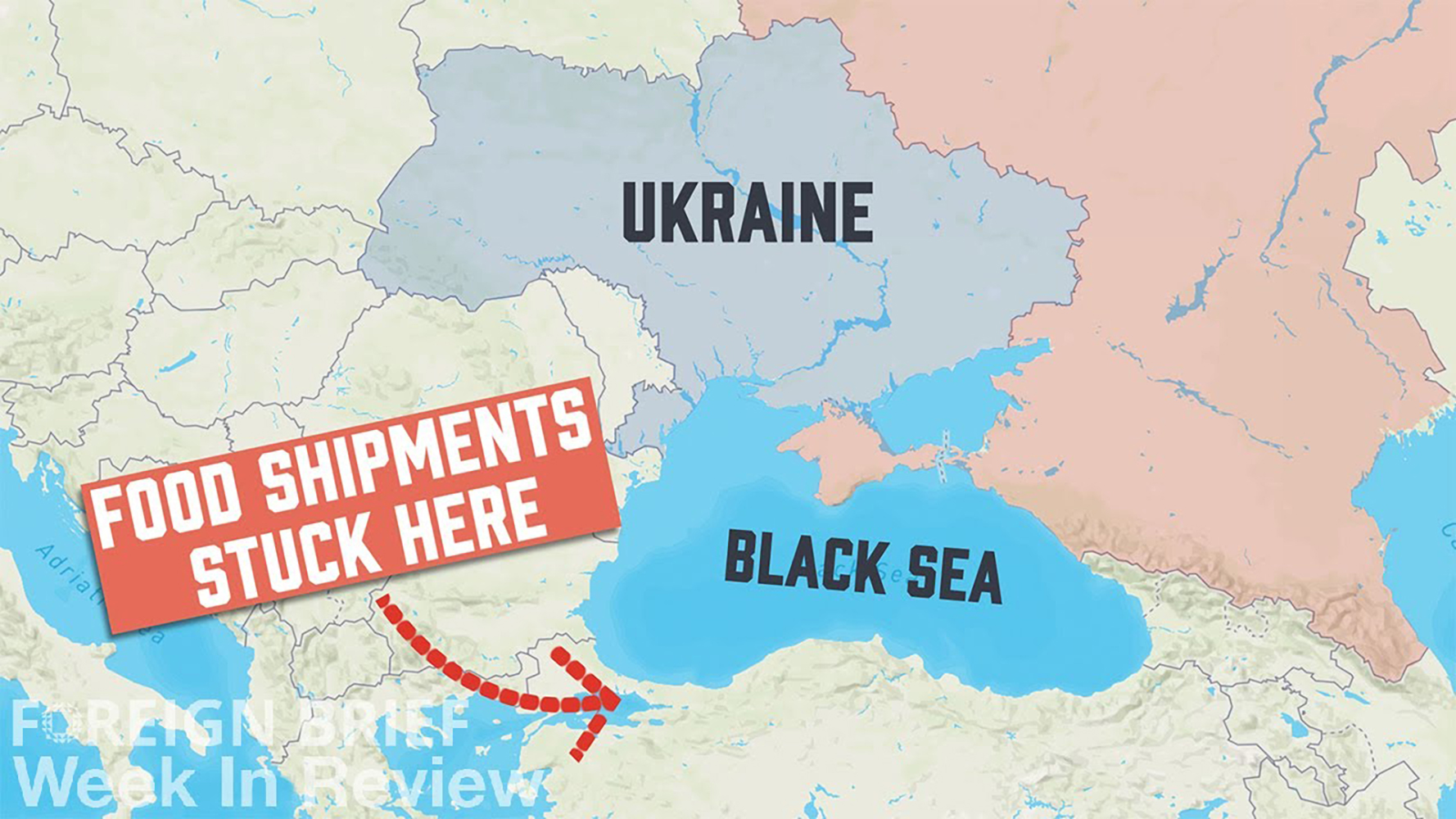How Diplomacy Could Alleviate a Global Food Shortage

A global food shortage brought about by the Russia-Ukraine war will hopefully be reversed after diplomatic steps were taken to allow Ukrainian and Russian grain and wheat exports to pass freely through the Black Sea.
Foreign Brief covers the UN deal passed last month which relieves both Russia of western sanctions and Ukraine of a Russian blockade in the Black Sea. As two of the biggest grain exporters in the world, this deal will stimulate both the Russian and Ukrainian economies, as well as temporarily return global wheat markets to pre-war levels.
Full transcript
For six months a jugular in the global food supply chain has been choked. Due to the war in Ukraine, both Ukrainian and Russian grain exports have been unable to escape the Black Sea and enter global markets due to Western sanctions on Russian exports, and a Russian blockade of Ukrainian ships. But now the first major diplomatic breakthrough since the beginning of the war will allow 25 million tons of wheat to exit the Black Sea. What does this deal entail and how will it affect the global food shortage?
The significance of Russia and Ukraine in the global food market cannot be understated. The two countries account for 1/3 of global wheat exports. Because of the war, Russia’s exports have been sanctioned by NATO and Ukraine’s have been blockaded by Russia. Subsequently, 47 million people have been pushed into acute hunger. At this critical time, the Black Sea export deal allows Ukrainian ships to pass through to Turkey’s Bosphorus Strait before being shipped around the world. Ships will be guided by Ukrainian Air Force pilots to avoid heavily mined areas of the Black Sea. Turkey will also play a role in ensuring Ukrainian wheat exports can pass safely. Last Wednesday in Istanbul, Turkey opened the Joint Coordination Center, staffed by 20 representatives from Russia, Ukraine, Turkey and the UN, the center will ensure safe passage for permitted shipments.
The first shipment of Ukrainian wheat will very likely resume at the end of this week and Ukraine hopes to quickly return to the pre war level of 5 million tons of grain per month. Globally, the return of Ukrainian wheat supply to the market will have a stabilizing effect on wheat prices and help alleviate rampant food insecurity. But despite UN’s monumental diplomatic progress, this deal could easily fall through only 12 hours after the deal was signed, Russia launched four Kalibr cruise missiles at the harbor in Odessa, the main port from which cargo ships would depart. Two struck the Ukrainian port, but two were intercepted by Ukrainian air defense systems. Despite the damage to the harbor, Ukrainian preparations for the resumption of exports continued signaling Ukraine’s resilience to underhanded Russian tactics.
Further jeopardizing the deal, Moscow stated that the deal could collapse if obstacles to Russian exports are not removed. Thankfully, the UN has agreed to a Memorandum of Understanding permitting the exports of Russian fertilizer and food. The EU and US added that the same would be exempt from their sanctions. Even after overcoming the strike on Odessa and Russian insecurities with the agreement, the export deal is only valid for 120 days, and it’s unclear how the war will affect its renewal. One constant is US military support. Washington recently released another $270 million in support, having now spent over $40 billion in arming Ukraine. As the war plays out, this short term grain deal might help to calm the global food shortage and provide stability in the wheat market in both Western and Russian aligned economies.
Daniel is the Chief Operating Officer of Foreign brief. He oversees the production and publishing of all of Foreign Brief's products. His background is in the air, space and cyberspace domains of national security and Indo-Pacific geopolitics. He is fluent in Mandarin Chinese.

